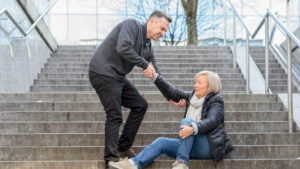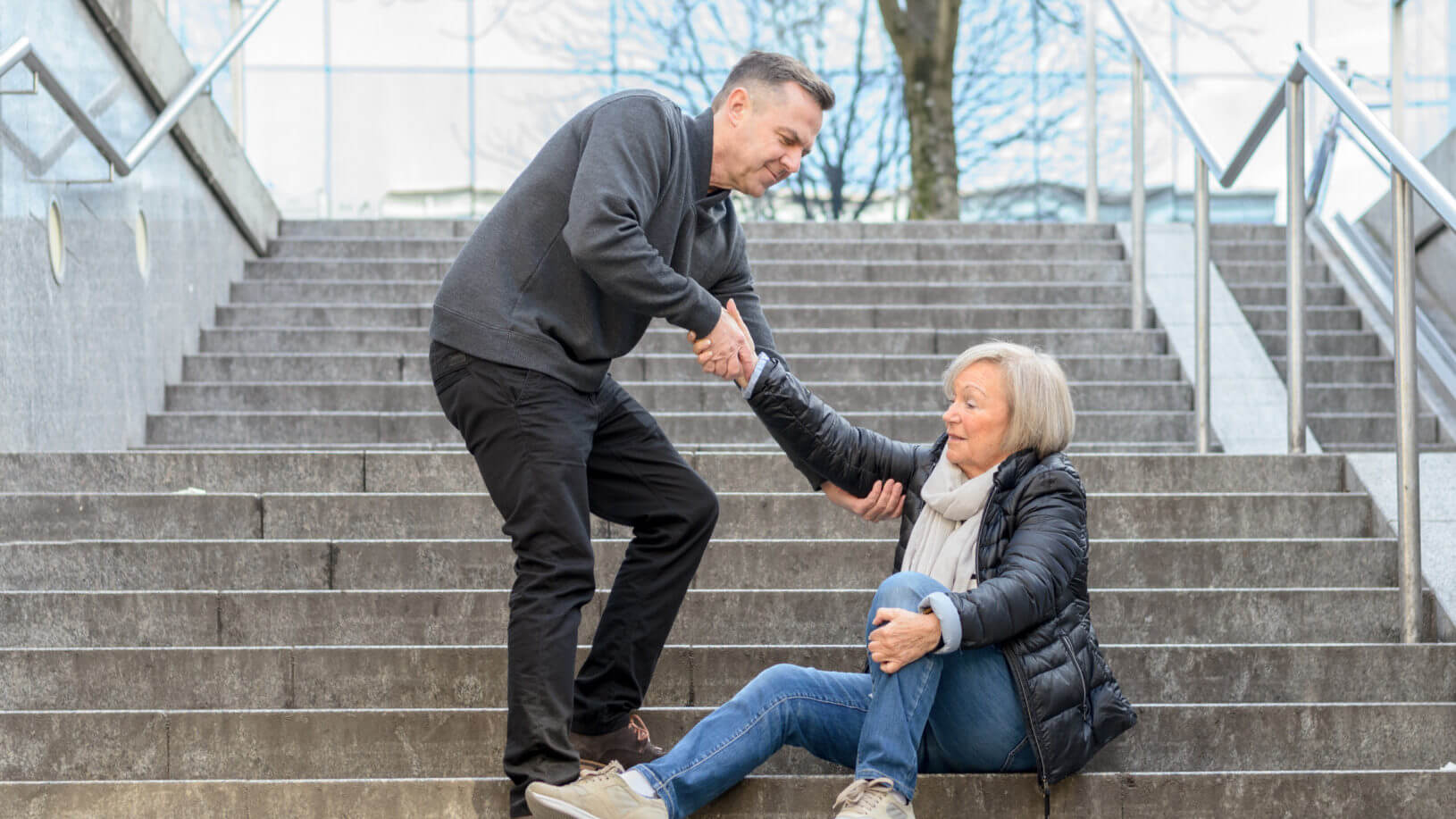Justin Stoltzfus
The simplest kinds of physical accidents can be extremely dangerous for seniors. Falling, according to the federal Centers for Disease Control and Prevention (CDC), is one of the greatest single causes of severe injuries for those over age 60. What may be a minor trip-up for a younger person can result in massive health care costs and serious complications for older people. Preventing falls, therefore, can prevent tragedy and lighten the load on the health care system.

The cost of falling
Falls result in more than 2 million visits to emergency rooms across the country, according to National Conference of State Legislatures — and that costs the health care system more than $20 billion annually, according to CDC. Worse, thousands of seniors die each year from injuries resulting from falls.
What makes falls so damaging and costly for seniors? Because falls are such a serious matter for elderly people, they often end up in emergency rooms; with costs of emergency care rising much faster than inflation, an ER visit can cost several thousand dollars.
Moreover, seniors often are physically frail, so a fall can lead to broken bones, head trauma and a loss of mobility, which, in turn, can cause a deterioration of the cardiovascular system. Also, joint replacements, which often are required for elderly fall victims, carry their own surgical risks. Various extra inpatient and outpatient visits may be necessary, and physical therapy may be required to help a patient regain his or her strength. All of this costs money.
Preventing falls
To prevent fall injuries, preventive safety is key. The National Institutes of Health provides the following tips for seniors:
- If you’ve fallen recently, tell your doctor.
- Be physically active. Exercise strengthens muscles and increases flexibility, reducing the chance of falling — and of serious injuries if you do fall.
- Be sure to get vision checkups. Don’t wear bifocals while walking, as they can distort your sense of distance.
- Know the side effects of your medications. If they cause sleepiness or dizziness, you could be at greater risk for a fall.
- Have your doctor check your blood pressure while you’re lying down and while you’re standing up. It may be normal while you’re sitting but could drop suddenly when you stand up, increasing the chance of a fall.
- Make sure your cane or walker is within reach, and you a have clear hallways and passages throughout your home.
States are combating falls in their own ways. According to the National Conference of State Legislatures, legislation aimed at preventing falls has been enacted or is being considered in several states. Washington state, Connecticut and Maine, for example, have fall prevention programs, while Illinois has established protocols for reporting fall data to state agencies.
The bottom line is that our oldest citizens need extra help to avoid the kinds of physical injuries that younger people often bounce back from. Proactive public safety efforts can help keep everyone safer and lower total health care costs.
